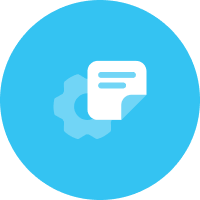Customer Data Platform (CDP Marketing)
A customer data platform (CDP) refers to an integrated software solution that aggregates and organizes all of your company’s customer data in one centralized location, where individual customer profiles are stored and accessible to all of your other tools, systems, and marketing efforts.
According to the Customer Data Platform Institute, a CDP has three critical elements:
1. Packaged software
Your CDP must be a prebuilt solution that is configured to fit your needs. While it may require some technical resources to set up and maintain, it won’t require the level of technical expertise of maintaining a data warehouse project, ensuring that the business user has a high level of control.
2. A persistent, unified customer database
Multiple software tools and sources of data are interlinked to create an integrated, comprehensive database of customer activity across all of your marketing and sales channels.
3. Accessible to other systems
Other tools in your technology stack, such as your marketing automation platform or your customer relationship management tool, should have access to your CDP to pull information from the customer profiles to support their own initiatives.
What data does a customer data platform compile?
As compared to the sales and marketing tools you typically use, a customer data platform can combine both proprietary and external data sources so that you have comprehensive profiles for each of your customers, which will provide better insights for your marketing initiatives.
A CDP can house numerous types of customer data, including:
If your customer has set up an account profile, filled out a form on your website, responded to a survey, or voluntarily provided other information to your brand, this content is sometimes known as “zero-party data.” This data might include information such as their name, address, purchase preferences, email account, and other personal information.
- First-party data
First-party data refers to data that your brand has collected on a customer. Beyond information submitted directly by the customer, this can include their visit history on your website, their email open rate history, purchase history, their social media accounts and their mobile app usage.
- Second-party data
Second-party data refers to data collected directly from a trusted partner or a private marketplace that has the consent to share customer data with you. For example, if you have a partnership deal in place with an online publisher, you can get access to the information that the publisher has about your customers’ content and ad consumption patterns and other data they’ve provided to the publisher.
- Third-party data
Third-party data is data provided by data aggregators that collect user information in bulk from various sources, which might include websites, apps, or plugins. High-quality, trusted third-party data can be used for data enrichment of your existing customer profiles: For example, it may be used to fill in gaps in user information such as their income level, education, employment status, and credit history. This information can help you to better qualify your customer base and help you understand the best way to target them.
Why you need a CDP
For businesses that market and sell to their customers across a variety of channels, integrating all of your data into a CDP can be a great way to gain new insights from your data, and will help to ensure that your marketing teams have the most current and relevant information to support their initiatives.
Here are several key benefits that you’ll gain from using a CDP to store and share your customer data:
A unified customer view
Rather than relying only on data from your CRM or marketing automation software, you’ll be able to get complete context on each customer through the information collected in your CDP— all from one centralized platform.
2. Visibility on the performance of each marketing channel
Your CDP helps you to track the ROI of your performance at the channel and campaign level on a per-customer basis, helping you understand which efforts are most successful.
3. Improved insights for your market analysis
Aggregating all of your customer data together in a unified view can give you better visibility, helping you personalize the experience for each customer more effectively and enabling you to respond more quickly to market changes.
4. Better efficiency
Your various teams (e.g. Marketing, Engineering, Product) may spend a lot of time asking one another questions or presenting their data to one another. By unifying all of your data in a CDP, everyone has visibility. They can work more efficiently and spend their time planning campaigns instead of collecting data.
5. More personalized communications to your customers
By getting access to in-depth data around your customers’ behavior, channel activity, and content affinity, you’ll be able to develop highly segmented marketing plans that meet them exactly where they are, which is more likely to influence engagement and conversions.
Improve your marketing automation and customer experience with a CDP
In order to make the most of your CDP, you’ll want to pair it with a best-in-class cross-channel marketing platform. Your marketing platform can provide much of the valuable data for your CDP, such as user, demographic, behavioral and custom event data, across every marketing channel (email, SMS, mobile push, web push, in-app notifications, social, and more). This data will be centralized within your CDP, so that it’s unsiloed and accessible to all of your marketing and sales teams.
In turn, your CDP can provide even more value as you plan marketing initiatives on your cross-channel marketing platform. By defining your marketing goals within your customer data platform, you can get actionable insights and key conversion metrics for your current campaigns, helping you understand your conversion rates and ROI. It can also help you increase customer lifetime value by delivering more relevant content and product recommendations based on all of your available data sources.
By pairing a CDP with a powerful cross-channel marketing platform, you’ll be armed with the data insights you need to efficiently deliver highly segmented, personalized marketing messages at scale—resulting in higher engagement, increased sales volume and heightened customer satisfaction.




























